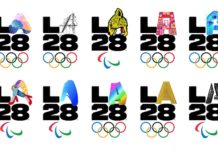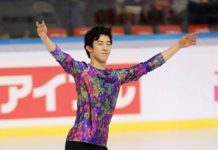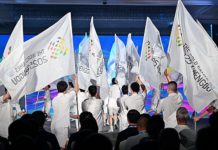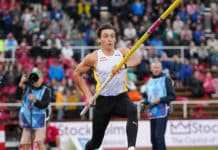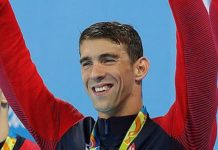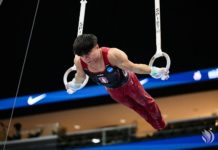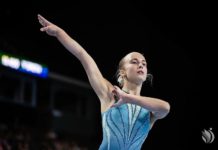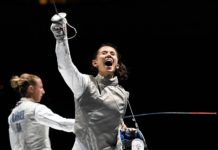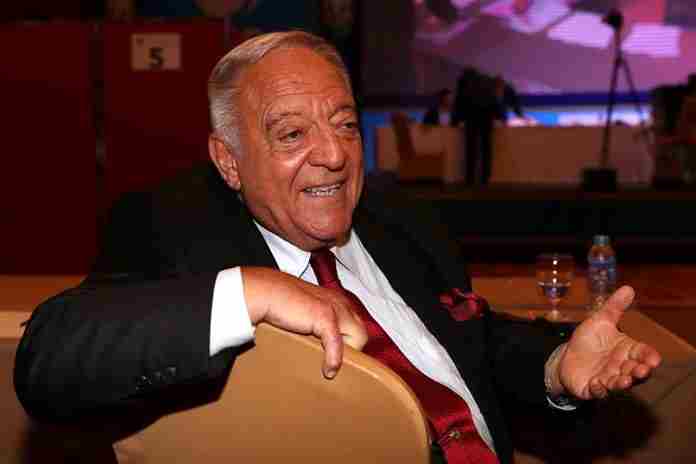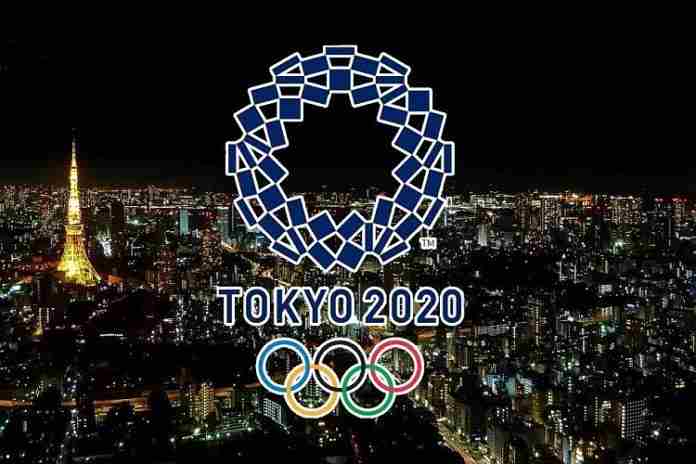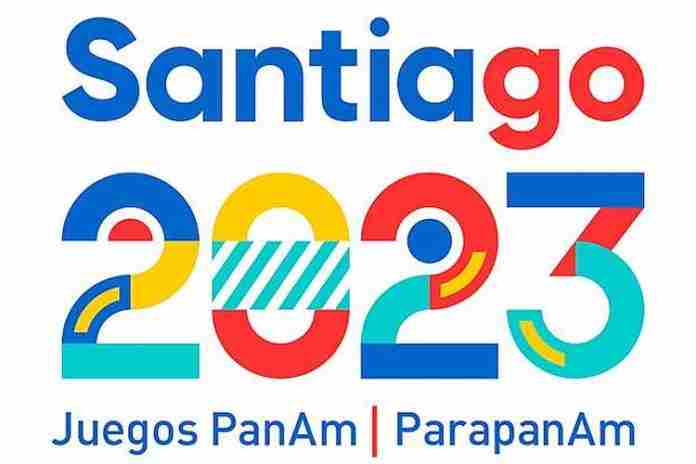The folks who brought you the Russian doping scandal in December of 2014 are back at it again.
The ARD network of regional public-service broadcasters in Germany aired a documentary on Sunday evening (5th) which investigated the International Weightlifting Federation, summing up its findings as:
“Black coffers, indulgences for entire countries, a ‘culture of corruption’ and doping without end. The Hungarian Tamas Ajan, President of the International Weightlifting Federation, has brought the traditional sport of weightlifting to the edge. Research by the ARD doping editorial office raises the question: How did it get this far?”
(The English above is a Google Translate version of the original German.)
Entitled “Geheimsache Doping – Der Herr der Heber” (in English, “Secret Matter Doping: The Master of the Lifters”), the 45-minute program was produced by the ARD team of Hajo Seppelt, Nick Butler, Grit Hartmann and Sebastian Munster. A lengthy list of allegations and findings crammed into less than an hour included:
● ARD states that between 1992-2009, some $23 million paid to the IWF by the International Olympic Committee was not shown on the IWF financial statements and diverted into two bank accounts controlled by Ajan alone. The show concluded that even after these funds were declared in 2009, at least $5.5 million remains unaccounted for. According to ARD, as notice of these potential crimes has been surfaced, the Swiss authorities – the IWF is headquartered in Switzerland – must investigate the situation.
● A careful review of the IWF’s doping control program between 2007-18 showed that some 16,000 tests were made. However, of the 453 medals awarded at the Olympic Games or World Championships during the same period, 45% – 204 – were won by athletes who were never tested outside of competitions in the year they won medals. The show notes that 42 of 62 Russian medalists from 2008-17 were not tested outside of competitions in the year they won medals, and there are many others.
● In 2013, 18 Azerbaijani lifters registered positive tests, but these were not reported by the IWF until March of 2014, during which time some of these lifters won World Championships medals. The program further alleges that the Hungarian anti-doping agency (HUNADO) was paid to accept manipulated samples which would then be tested and be declared clean. The team doctor for Moldova told an ARD undercover reporter that substitutes would appear to give samples in place of the actual athlete to be tested, and the HUNADO doping control officers would not look too closely at the passport. The program stated that 77% of all doping controls carried out by the IWF were done by HUNADO. But at the 2015 World Championships in Houston, Texas, the U.S. Anti-Doping Agency did the testing and found 24 positives in that meet alone!
● The show noted a lack of clarity about the payment of fines by national associations as a result of doping positives. The Azerbaijan federation was fined $500,000 in 2013 for its rash of positive tests, but had not paid as of 2014 and a financial reconciliation in 2017 still did not show payment of this amount. What happened? One more note: the fines were often paid in cash, a requirement alleged to be insisted upon by Ajan.
● An undercover team spoke to Thailand’s Rattikan Gulnoi, who was given the bronze medal for the 2012 Olympic 58 kg class in 2018 due to the disqualification of the original Ukrainian medal winner for doping. But then Gulnoi told the reporters that she had been doping herself since 2011, when she was 18. And she said that Thai lifters as young as 13 had been started on a doping regimen! The doping program had been worked out to the point that any trace of the drugs was undetectable within 24 hours.
The reactions came fast and furious on Monday:
● From the International Weightlifting Federation:
Two statements were posted on Monday. The first was “IWF rejects ARD allegations” which included:
“The IWF has to express its shock and dismay at the program as it contains many insinuations, unfounded accusations and distorted information, and it categorically denies the unsubstantiated and very serious accusations made against it by the show.”
The federation claimed that its finances are in order, and have been examined, that there has been out-of-competition testing, especially for Georgia’s 2016 Olympic and four-time World Heavyweight Champion Lasha Talakhadze and that the USADA worked in conjunction with HUNADO at the 2015 and 2017 World Championships.
The second statement, “IWF Follow-up on Widespread Doping Among Thai Athletes,” included:
“On 5 January, German TV channel ARD broadcast a show in which a former Thai weightlifter, Rattikan GULNOI appeared to have implicated herself and other Thai weightlifters in doping. The IWF has immediately followed up with the Thai Federation. The IWF has also requested copies of ARD’s materials.
“The widespread abuse of the same anabolic agent, especially among juniors, in Thailand would appear to be indicative of an organised system of doping that may have extending beyond the sanctioned athletes themselves. This impression would appear to have been reinforced by the apparent confession secured by ARD. The IWF will now confer with WADA and the International Testing Agency, in order to establish whether a wider investigation may be appropriate.”
The IWF said more comments would be coming later.
● From the International Olympic Committee:
The IOC, to its credit, did not wait until Wednesday’s Executive Board meeting to respond. A statement from the IOC noted that “The accusations are very serious and worrying” and that it does not have documentation of either the financial irregularities or the doping information.
The “doping confession” of Gulnoi will be investigated immediately, and a lengthy paragraph noted that a complaint against Ajan in 2010 was barred from inquiry by the Court of Arbitration for Sport. But, “Given the change in the IOC Code of Ethics since then and the fact that the television programme may contain new information, the IOC Chief Ethics and Compliance Officer will ask ARD for all the documentation in its possession to properly address it.”
● From the World Anti-Doping Agency:
WADA’s statement was short, including “WADA can confirm that its independent Intelligence and Investigations (I&I) Department is aware of the allegations and will continue to pursue its enquiries regarding potential breaches of the World Anti-Doping Code. However, as these enquiries are ongoing, WADA has no further comment to make in this regard at this time.”
It added that the allegations of Thai doping in weightlifting “are new and of great concern to WADA” and it will be following up immediately.
USA Weightlifting chief executive Phil Andrews also released a statement which underlined the need to investigate the Thai situation, to also look into doping practices in Egypt, and to continue the fight against doping. He noted that the anti-doping program of the IWF is now under the control of the International Testing Agency (ITA) and no longer overseen by the federation. He called for a thorough investigation of all of the allegations in the program.
So now what?
The timing of the ARD program could hardly be worse for weightlifting, which has only in recent months come out of the shadow of an IOC review of rampant doping in the sport that could have kept it off the program in Paris for 2024. Heads will now turn to the IOC’s Executive Board, which will meet on Wednesday (8th) to see if further actions will be undertaken to determine whether the sport will continue to be part of future Games.
It never ends, does it?








